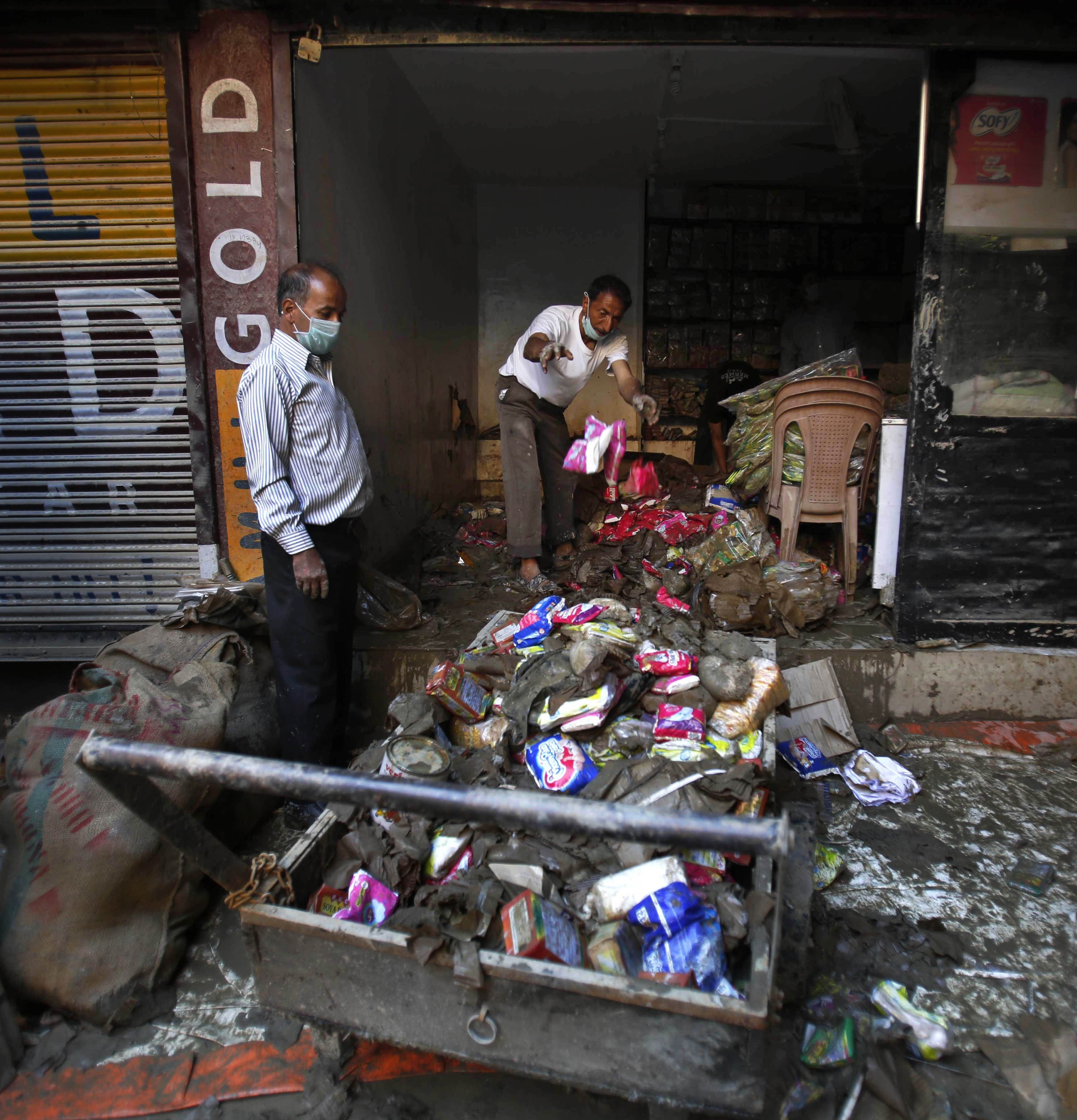'Unprecedented catastrophe' facing Kashmir after floods
Health workers were scrambling Tuesday to manage a mounting health crisis nearly two weeks after massive flooding engulfed much of Kashmir, and were treating cases of diarrhoea, skin allergies and fungus while hoping the stagnant waters do not create conditions for more serious disease outbreaks. Countless bloated livestock carcasses were floating across the waterlogged Himalayan region. Many residents, warned to avoid the flood waters, were rationing water bottles brought by aid workers every few days.
The chance of cholera, jaundice and leptospirosis spreading are high … The most essential need right now is that of clean water.
Dr. Swati Jha, Americares aid group
The scale of the disaster - described as an “unprecedented catastrophe” by the region’s top elected official - has stunned many in India, with newspapers running daily front page aerial photos of rooftops framed by mud-brown waters. Most hospitals have been inundated, their diagnostic equipment, CT scanners, operation theaters and ventilators destroyed. Both sides of the Himalayan region of Kashmir, divided between India and Pakistan, have seen extreme devastation, with hundreds of thousands of families losing all their possessions.
With our health infrastructure lost, any disease can be catastrophic now. You don’t need any plague for mass deaths.
Dr. Javaid Naqashbandi, critical care specialist

Asia-Pacific